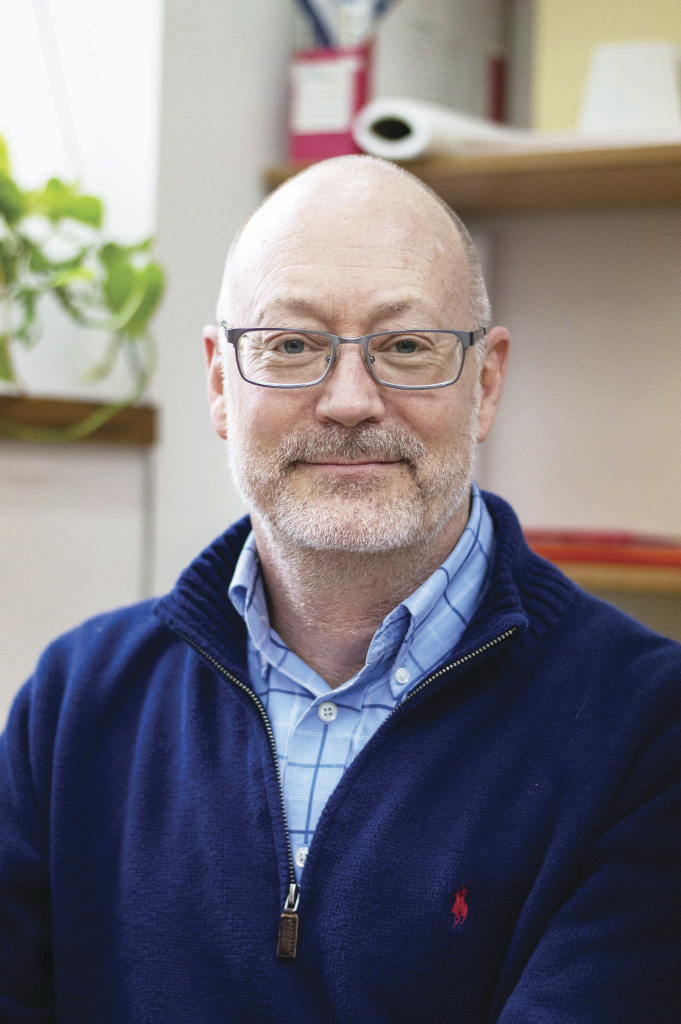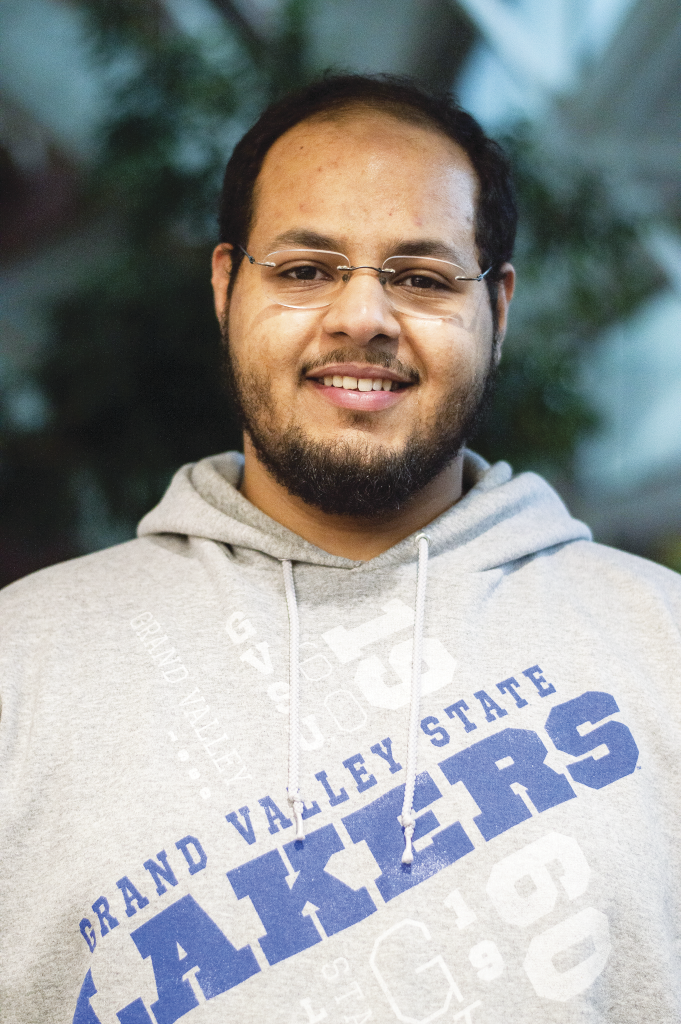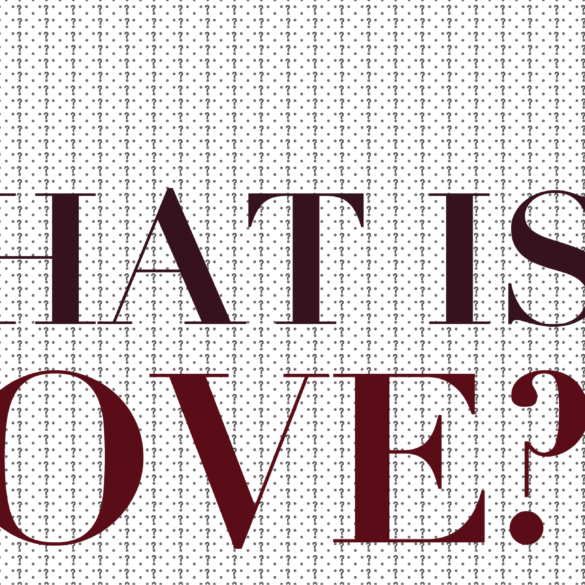Members of the Ball State community share what love means to them.
The dichotomy of love—how it makes and breaks relationships, brings peace and occasionally causes war, feels amazing, yet hurts so much, gives meaning to so many, yet is inherently meaningless—is what makes it absurd. Asking people to try and define love fails to reach one universally agreed on definition.
But rather than seeking an objective definition of love, we’ve asked others what the word means to them, trying to find similarities in their answers. With or without religious faith, people associate the word with deep sentiments. There is no one answer to the question of what love is, but Ball Bearings sat down with four individuals from diverse backgrounds to find out what it means to them.
 Robert Phillips is an assistant professor of anthropology at Ball State University. He also serves as director of religious life at Temple Beth El in Muncie.
Robert Phillips is an assistant professor of anthropology at Ball State University. He also serves as director of religious life at Temple Beth El in Muncie.
I think love is just the idea of caring deeply about somebody else. Not just about individuals, but about creation as a whole. It’s a deep caring.
For me, the definition of love comes from the Book of Leviticus. “Love thy neighbor as thyself.” As a religious Jew, but also just as a Jewish person, I think that is the key to love in Judaism.
One of the big commandments within Judaism is this idea of elevating other people. Elevating them not only in terms of the mundane world, but also elevating our fellows spiritually. I think there’s a lot of love involved in that kind of process, in that idea of loving people regardless of whether you agree with them.
I know that in every religious tradition, there’s a lot of debate, and it’s not always cordial. People are very invested in their faith.
And so, I think part of that idea of love is to try to love your neighbor as yourself, and to put yourself in that other person’s position. I think the first time I ever really felt love—religious love—was at a pilgrimage site in India I used to go to often when I was younger. It’s one of those really profound places where you wait in line for 12 or 15 hours to get darshan, a prayer with offerings, of the icon of Balaji. And it’s incredible. It’s hard to even put into words that kind of experience. I’m not a Hindu, but it’s that idea of being in front of the image of God, which is what Balaji is. For me, it was a very profound religious experience, even though it’s not my tradition.
Caring deeply about people doesn’t necessarily involve love. You can care deeply about the immigrant families at the border, but that doesn’t mean you love them. You can care a lot about something. Is love something you are willing to sacrifice for? Are you willing to put your life on the line for somebody else? Is that love? Choosing the other above yourself?
 Liz Terlep is a senior public relations and economics major at Ball State, where they are also a member of the Society for Earth-Based Religions.
Liz Terlep is a senior public relations and economics major at Ball State, where they are also a member of the Society for Earth-Based Religions.
Defining polytheism, according to Liz: “I’m polytheistic, but I follow something called the gem theory, which means I believe that the power at work in the universe—God, if you want to call it that—is so complex and massive, so multifaceted, that all religions from the world basically saw a part of that God. That was their interpretation of it, but they didn’t get the whole scope of it. So, I think all religions are basically correct unless one of their principles is that theirs is the only religion you can follow.”
I think there’s a certain amount of love that is chemical and somewhat involuntary. But the largest and most meaningful part of it is that choice you make to stick with someone. I think you can take that choice back. You can find that it’s not a good fit. But successful love doesn’t mean animal attraction so much as it means dedication and trying to make something work.
Because humans don’t perfectly mesh together. We just don’t. We are complex individuals, and love isn’t supposed to be completely easy.
I have a lot of Gods and Goddesses that I follow who aren’t so strict with the idea of love in the way American culture is, where you can have your one true love. You get married, pop out babies, and not get divorced—otherwise, the love was never real.
I don’t believe you should hold on to someone for as long as possible until you’re both miserable and hate each other. A lot of that comes from my practice in seeing all these miserable characters in myths who just wanted something so badly, they couldn’t see when it was no longer good for them. I tend to let love come and go as it pleases. If it’s forced, then it’s not real.
When it comes to friends and family, I don’t think love is something that should be there just because that’s what’s expected, but because it feels right to both of you or you’re willing to work for it.
I would define love in a single phrase as perfect trust and connection that isn’t threatened by insecurity and deceit.
 Anas Almassrahy is a Ball State graduate student studying urban and regional planning. He is also a member of the Muslim Student Association.
Anas Almassrahy is a Ball State graduate student studying urban and regional planning. He is also a member of the Muslim Student Association.
Love means a lot of things. It’s a big concept. One thing that comes to mind is responsibility, even though most people probably wouldn’t think of that right away.
Love also means mercy. It could mean family, for some. Love means connection, relationships, and commitment. To me, love also means peace.
Within Islam, the main thing love means to me is mercy. When I say “the Almighty,” I think of someone who’s loving. And when I see my own relationship with my mom, I’d say she loves me, has mercy on me, and is caring.
Coming from a big family and being one of seven siblings, love means establishing a relationship with my siblings and parents. I care about them. They care about me.
I grew up in Mecca, Saudi Arabia, and I saw people making their pilgrimages from thousands of miles away. When I was young, I would think, Why would people do this? I think of it as people trying to fulfill their religious duties. I see they are trying to seek mercy. The Almighty is merciful and loving. However, I see it from a point of view that people have got to work for it. I see people coming from all destinations, and they’re all loving together by doing the same thing. This is how love was established in my mind.
Mercy and caring—that’s what love means to me.
 Taylor Penley is a senior communication studies major at Ball State who follows Christianity.
Taylor Penley is a senior communication studies major at Ball State who follows Christianity.
Because my faith is central to my life, love to me is what God deemed it to be. God is love. He is kind and sacrificial. He pours out everything for us. In loving others, I try to reflect the way God loves me.
Jesus gave His life for me, sacrificing Himself for others, being kind, and being a listener. I would also say love is a choice: Jesus chose to love us, and it’s not just a feeling. It’s a choice to love other people.
I believe God created us, and He created me. I chose to run from Him, like we all do, but He didn’t want me to stay separated from Him.
My definition of love comes from the fact that God sent Jesus, His only son, to die on the cross so that I could have a relationship with Him. While I was still far from Him, He came and died for me, which is the greatest act of love.
I think even in human terms—if you love your friend so much that you would die for them—that’s a great extent. But I could never live up to that because the love of Jesus is so perfect.
In middle school, I wasn’t treated very well by my friends, so I was taught to treat others poorly. For a really long time, I was not a very kind person, and I still struggle. That resulted in a lot of brokenness and darkness in my life. One day I looked in the mirror and was like, This is not who I am. This is not who God created me to be. Although I didn’t realize it at the time, I was dealing with a lot of depression and anxiety. But later, I realized Jesus was sitting right next to me through all of it, which was really sweet. At a certain point, I realized there was nothing I could do to make myself get enough love. The affirmation of others was never enough. That’s when I really decided to turn to the Lord, and that’s when my definition of love really started to form. I realized how He had seen me in my brokenness and called me out of it.
God is love. That is as simple but also as deep as it can get.
Ball Bearings has edited statements for clarity. This Q&A was originally published in the spring 2019 print edition.




